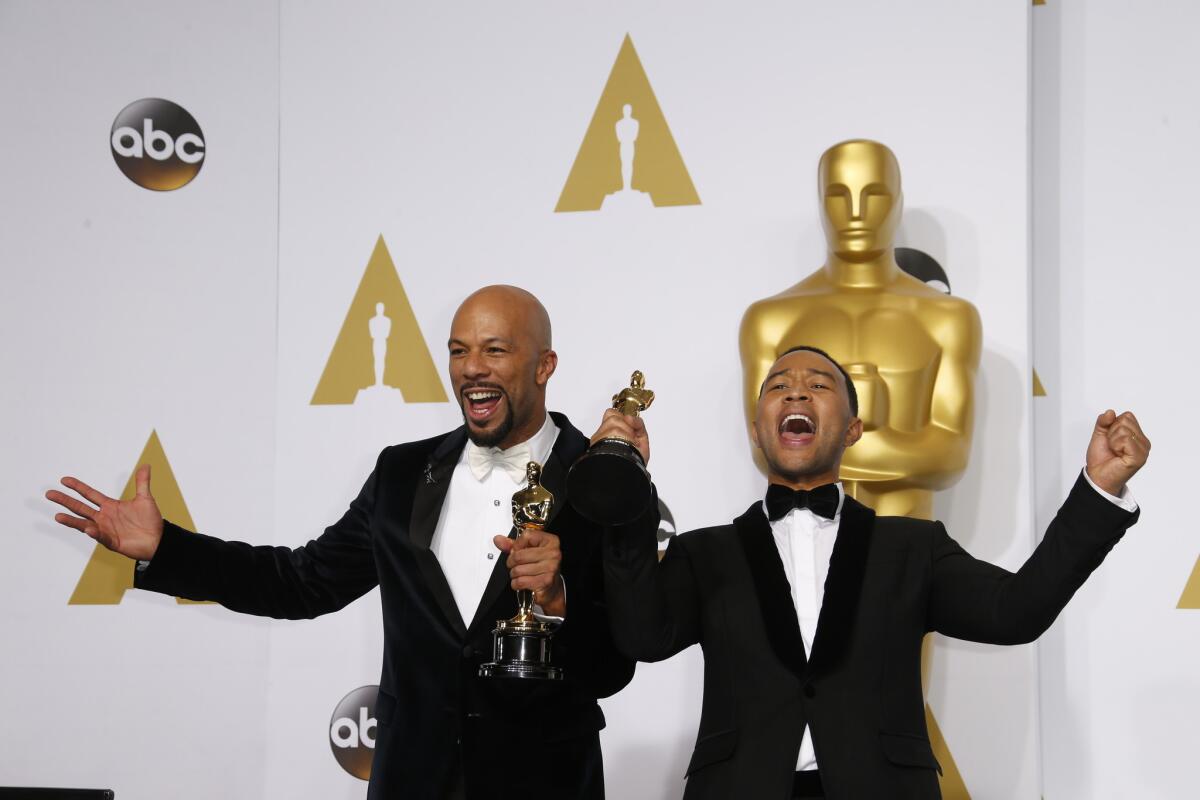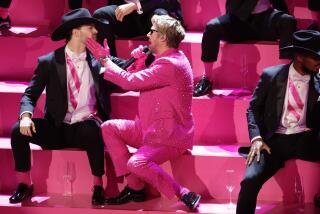Common and John Legend talk ‘Selma,’ ‘Glory’ and protest music

One of the most discussed musical performances during Sunday’s Academy Awards broadcast was for the Oscar-winning song “Glory.” Taken from the Ava Duvernay-directed film “Selma,” the song was written by John Legend and Common, and performed at the Dolby Theatre by the pair along with a gospel choir.
The team delivered a memorable acceptance speech, and expanded on that backstage after the ceremony. Below, a few excerpts.
FULL COVERAGE: Oscars 2015
Legend on the creation of the song:
“So Common called me, he called me because he had spoken to Ava, and they wanted to find a song for the end credits of the film. And he called me, I was on tour at the time in London, and he described what they were looking for and he gave me some ideas for the title for the song. And one of the ideas he gave me was ‘Glory,’ and that word really inspired me and I wanted to write a chorus and music around that idea of ‘glory.’”
Legend on the inspiration for “Glory”:
“My thoughts were that the song should sound triumphant but also realized that there was more work to do. So when I said, ‘One day when the glory comes,’ that means we still have more work to do. And so that’s what I wrote about. And then Common wrote incredible verses that tied Dr. King’s movement to what’s happening in America today.”
Common on the responsibilities of artists to voice their beliefs:
“As John spoke in his speech when he said Nina Simone and talked about using this platform, I feel like to whom much is given, much is required. And the fact that we have an opportunity to get to a stage like the Oscars, I mean how could you not say anything, especially representing a film like ‘Selma,’ representing the song ‘Glory,’ and just honestly being an artist that cares.
PHOTOS: Red carpet | Show highlights | Quotes | Best & worst | Backstage look | Winners’ room
“Beyond what we have done on this song, John has always made music about love. He’s been doing things for education for a long time. He stands up for issues. Him and his wife send trucks to people that were protesting, food trucks to people that were protesting in New York to support them. Those are the things that I feel like we can do as people in a position of power and influence. So, yes, I feel it’s our duty. And I don’t hold any other artists accountable, but it’s our duty, if you recognize that, to do it.”
Follow Randall Roberts on Twitter: @liledit
More to Read
The biggest entertainment stories
Get our big stories about Hollywood, film, television, music, arts, culture and more right in your inbox as soon as they publish.
You may occasionally receive promotional content from the Los Angeles Times.











